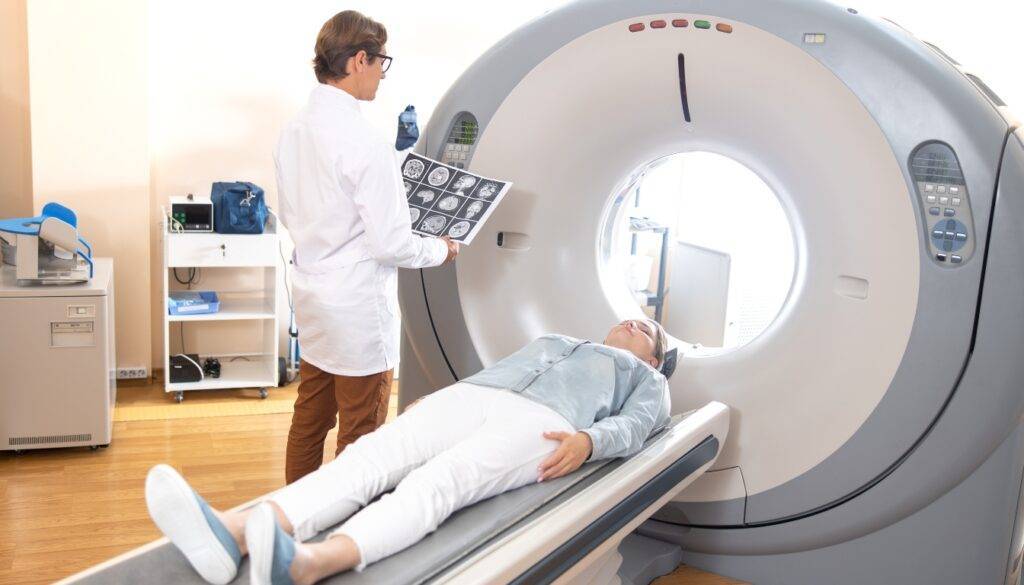High cholesterol is a sneaky health problem that can get worse during the holiday season. During this time, people often eat more unhealthy foods and feel extra stress. This can make bad cholesterol levels jump by 20%.
Cholesterol has different types like LDL, which you want to keep low, and HDL, which is good for you. Too much of the bad kind can make your arteries sick and raise the chance of heart attacks.
Almost half of Americans need medicine to control their cholesterol. Eating better and moving around more are two ways to fight high cholesterol without pills. Doctors say cutting down on certain fats and being active could lower bad cholesterol by up to 20%.
But sometimes lifestyle changes aren’t enough, so there are medicines like statins or newer ones like Leqvio.
Over days like December 25th, December 26th, and January 1st, heart attacks happen a lot because many people don’t take care of their hearts as they should. To check how healthy your heart is before problems start, older adults might consider a special scan called a coronary calcium scan.
This introduction will lead us through tips on how we can manage our levels better during times when it’s easy to forget our health goals. Keep reading for helpful advice on keeping your heart strong all year round!
The Impact of Holiday Season on Cholesterol Levels

During the holiday season, many individuals face challenges in maintaining heart-healthy habits, with festivities often bringing about elevated consumption of rich foods and a departure from regular exercise routines.
This period of indulgence can significantly influence cholesterol levels, potentially leading to longer-term cardiovascular health implications.
Increased consumption of unhealthy foods and drinks
Holidays often bring more junk food and sugary drinks into our lives. These can raise your cholesterol levels fast. Think about all the cookies, pies, and rich foods that come with holiday meals.
They are usually full of saturated fats and sugars that make your LDL or “bad” cholesterol shoot up.
Eating too much fatty food is not good for you. It’s easy to do when everyone around you is celebrating with treats and heavy meals. Try choosing healthier options like fruits, nuts, or lean turkey meat instead of red meat.
Drink water instead of soda or alcohol to keep both your calories and your cholesterol in check. This way you help your heart without missing out on the fun!
Elevated stress levels
Holidays often mean more stress from planning, shopping, and going to parties. Your body may react to this stress by making more bad cholesterol. Too much stress can make your heart work too hard.
It can raise your chance of getting heart disease or having a heart attack.
You need good ways to deal with stress during the holidays. Try walking or playing sports to stay calm. Eating healthy foods also helps your body handle stress better. Talk with friends or family about your worries – it can make you feel less alone and stressed out.
If you keep your body moving and watch what you eat, even when things get busy, you can help stop bad cholesterol from rising too much.
Spike in bad cholesterol levels
Stress isn’t the only thing that rises during holidays; bad cholesterol often jumps up too. Eating more foods rich in fats and sugars can cause your LDL, or “bad,” cholesterol to go up a lot.
This is important because high levels of LDL can lead to a buildup of plaque in your arteries. When this happens, it’s harder for blood to flow through, which can cause heart problems or even a stroke.
One fact stands out: During the holiday season, some folks see as much as a 20% increase in their bad cholesterol levels! That’s why being careful about what you eat and drink is super important now.
Stick with healthier options like whole grains and veggies instead of lots of sweets and heavy meals. Keeping an eye on your diet helps keep your cholesterol under control so you can stay healthy for all the fun stuff the holiday season brings!
Understanding Cholesterol Levels

Grasping the intricacies of cholesterol is pivotal for maintaining heart health, especially during a season when temptations abound. Recognizing the difference between beneficial and potentially harmful types of cholesterol forms the foundation for effective management and prevention strategies.
LDL (low-density lipoprotein) cholesterol
LDL cholesterol is often called bad cholesterol because it can build up in the walls of your blood vessels. This buildup can lead to a hardening and narrowing of the arteries, known as atherosclerosis, which increases your risk for heart disease and stroke.
Having an LDL level over 100 milligrams per deciliter means your levels are high, which puts you at greater risk.
Many Americans struggle with managing their LDL levels; nearly half need medication to keep it under control. Left unchecked, too much LDL can be dangerous, as atherosclerosis is the leading cause of death from untreated elevated cholesterol levels.
It’s very important to keep an eye on these numbers for a healthy heart and body.
HDL (high-density lipoprotein) cholesterol
While LDL cholesterol is often tagged as the bad type, HDL cholesterol stands out as the good kind. It acts like a helpful friend for your heart by clearing out excess from your blood and taking it to the liver where it’s broken down.
High levels of HDL are great because they lower your chance of having heart problems or a stroke.
Staying active with regular exercise can boost your HDL numbers. This is really important since almost half of Americans have high cholesterol which includes both LDL and HDL types.
If you’re using medicines like statins, they can help raise your HDL too, along with keeping other types in check. So making sure you move around plenty and maybe even taking medicine if needed helps keep that friendly HDL doing its job right.
Triglycerides
Just as high-density lipoprotein cholesterol plays a part in your body, triglycerides are important too. They are a type of fat found in your blood. Eating more calories than you burn, especially from sugary and high-carb foods, can increase their levels.
High triglycerides can be risky because they may lead to swelling inside the walls of your arteries. This inflammation makes it hard for blood to flow and increases the chance of heart problems.
Keeping these fats low is smart for your heart health. You can do this by eating less sugar and fewer carbs. Foods like candy, baked goods, and soda have lots of these things that bump up triglyceride levels.
Aim for meals with healthy fats, vegetables, and whole grains instead to help keep these numbers in check.
Lifestyle Habits and Cholesterol Levels
Understanding the intricate relationship between daily habits and cholesterol levels is crucial; delving into how diet choices and physical activity can significantly shape our cardiovascular health offers a pathway to improved well-being.
Effect of diet and exercise on cholesterol levels
Eating the right foods and staying active are powerful ways to manage cholesterol. Foods low in saturated fats help lower bad LDL cholesterol. Think about adding more fruits, veggies, and whole grains to your meals.
They have less bad fat and more good stuff like fiber. Fiber grabs onto cholesterol in your body and helps push it out before it can cause trouble.
Getting regular exercise is another awesome move for your heart health. Aim for activities that get your heart pumping, like walking or dancing, at least 4 days a week. This kind of physical activity can boost the good HDL cholesterol in your blood and cut down on the bad LDL kind by up to 20%.
Now let’s talk about how certain medicines can also help keep cholesterol levels in check.
Recommended dietary changes and exercise routines
Good diet and exercise habits are key to managing cholesterol. These changes can help you keep your heart healthy.
- Cut down on saturated fats: These are in foods like red meat and full-fat dairy products. Try to eat less of these to lower your LDL cholesterol.
- Eat more fruits and vegetables: They’re full of nutrients and can help protect your heart. Aim for a rainbow of colors on your plate.
- Choose whole grains: Foods like oatmeal, brown rice, and whole-wheat bread have more fiber, which is good for your cholesterol levels.
- Enjoy fish with omega-3 fatty acids: Fish like salmon and mackerel are rich in good fats that can boost HDL cholesterol.
- Add nuts to your diet: Almonds and walnuts are full of healthy fats that can help lower bad cholesterol.
- Use healthier oils: Olive oil and sesame oil have fats that are better for your heart than butter or lard.
- Limit sugar and carbs: Eating too many sweets or starchy foods can raise triglyceride levels, so it’s best to cut back.
- Get moving every day: Exercise can raise HDL cholesterol. Try walking, biking, or playing sports for at least 30 minutes most days.
- Quit smoking if you do: Giving up cigarettes can improve HDL levels and help protect your arteries from damage.
- Drink alcohol only in moderation: Too much alcohol can lead to higher triglycerides and total cholesterol.
Medical Treatment for Elevated Cholesterol
While lifestyle modifications are pivotal, the judicious use of medications like statins can be instrumental in managing high cholesterol, warranting a deeper look into how these treatments complement your health regimen.
Medication options such as statins and Leqvio
People with high cholesterol have different ways to manage it. One common way is taking medicines called statins. These pills help by lowering the amount of cholesterol your body makes.
They work well and can make bad cholesterol levels go down while making good cholesterol levels go up.
Some people might need extra help even if they take statins. For them, doctors can add a new medicine called Leqvio. This one is not a pill; it’s an injection that you get from a healthcare provider.
It works with the statin to do an even better job at controlling cholesterol levels in your blood.
Importance of compliance with cholesterol-lowering treatments
Sticking to your cholesterol-lowering treatment is key. Almost half of all Americans need medicine for their high cholesterol levels. When you take medications like statins as your doctor tells you, they can really help.
These drugs lower the bad cholesterol and fats in your blood while making the good cholesterol go up. This way, they protect you from heart attacks and other serious heart problems.
If statins don’t work well for you or if they cause side effects, talk to your healthcare provider about other options. There’s a new shot called Leqvio that can be added to your statin plan.
Taking this step keeps your heart healthier by controlling bad cholesterol levels more effectively when combined with a healthy diet and regular exercise.
Proactive Measures for Managing Cholesterol
Engaging in proactive measures is essential for maintaining optimal cholesterol levels, especially during the indulgent holiday season; discover impactful strategies to keep your heart health on track.
Setting health goals
Setting health goals is a key step towards managing cholesterol. It starts with choosing what you want to change, like eating more roasted vegetables or exercising more often. Make your goals clear and doable.
For example, “I will walk 30 minutes a day” is better than just saying “I will exercise.” Write down these goals to help remember them.
Talking with a healthcare professional can also guide you in setting the right goals for your heart health. They know about things like high-density lipoproteins (HDL) and low-density lipoproteins (LDL), which are types of cholesterol in your blood.
They can tell you how different foods and exercises help keep these at good levels. This way, you make choices that are smart for keeping your heart healthy.
Seeking healthcare provider guidance
After deciding on your health goals, talk to a doctor or nurse for help. They can make sure you have the right plan and tell you more about your cholesterol numbers. It’s important to work with them, especially if you need medicines like statins or Leqvio to keep your cholesterol in check.
Your healthcare team will help you stay on track with any treatments and give advice for healthy living. If one medicine doesn’t work or feels wrong, they’ll find other options that might be better for you.
Keeping open lines of communication with your provider supports the best care for your heart.
Advocating for heart health
Talking to your doctor about how to keep your heart healthy is just the start. You also need to spread the word about good heart care. Tell family and friends. Ask them to join you in eating right, moving more, and checking their cholesterol levels.
Heart health is not just a personal matter; it’s something whole communities can embrace.
Staying on top of your health goals can mean better heart health for everyone. Get involved in local events that focus on staying active and healthy eating. Offer support to those trying hard to lower their cholesterol.
By looking out for one another, we all help keep our hearts strong and fight against diseases like atherosclerosis—the number one killer linked with high cholesterol levels.
Importance of Heart Health Evaluation
Recognizing the importance of monitoring cardiovascular wellness, a thorough heart health evaluation stands as a crucial step in managing cholesterol levels. Such assessments can unveil risk factors and guide individuals toward tailored interventions to maintain heart function at its best.
Coronary calcium scan recommendation

A coronary calcium scan is a special type of test that shows if you have hard plaque buildup in your heart’s arteries. This plaque can make it hard for blood to flow and might lead to serious heart problems.
Experts say men over 45 and women who are close to or past menopause should think about getting this scan.
The scan helps doctors see risks early on, so they can tell you the best way to stay healthy. If you’re worried about your heart, talk with your doctor about whether a coronary calcium scan makes sense for you.
Taking care of your health now could mean a big difference later on! Now let’s consider how lifestyle changes and medicines work together for your heart’s health.
Lifestyle modifications in combination with pharmacology
To help control your cholesterol, you need to change some things in your life and maybe take medicine. Eating better and moving more can work with drugs like statins to make your heart stronger.
Statins are pills that many people take to lower their bad cholesterol and raise their good cholesterol. For folks whose bodies don’t like statins or who need extra help lowering their cholesterol, a new shot called Leqvio could be added.
Your doctor will guide you on how best to combine lifestyle changes with medications. You might start eating foods rich in plant sterols, like Benecol, or exercising regularly to support the work of prescriptions like statins.
It’s important to follow what the doctor says so that together with the right treatment plan, you keep your heart healthy. Now let’s talk about proactive measures for managing cholesterol levels during festive times!
Conclusion
Keep your heart happy during the holidays by watching what you eat and drink. Make time for workouts, even when it’s busy. If you need them, remember to take your heart meds. Try eating foods that help lower bad cholesterol, like nuts and oats.
Talk with doctors if you’re worried about your heart—they can guide you. Let’s keep our hearts strong all year long!
